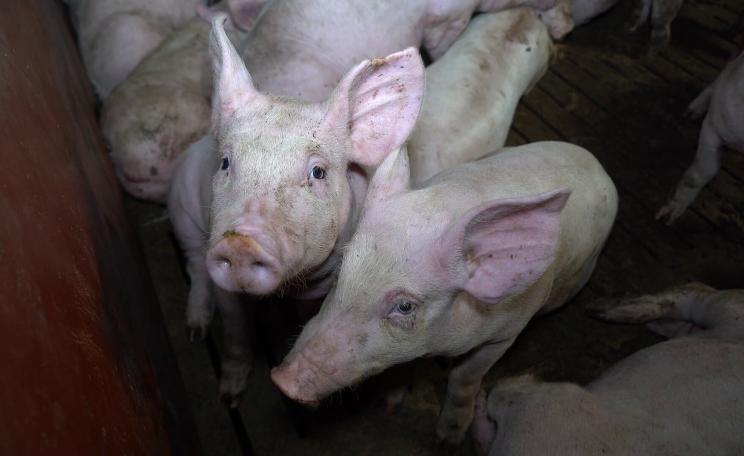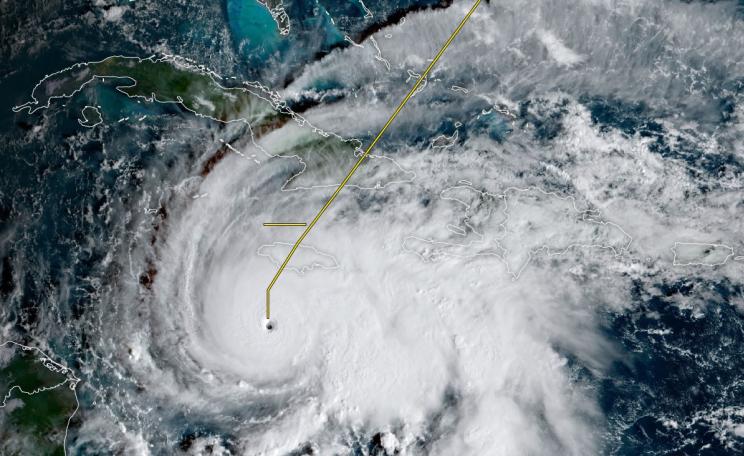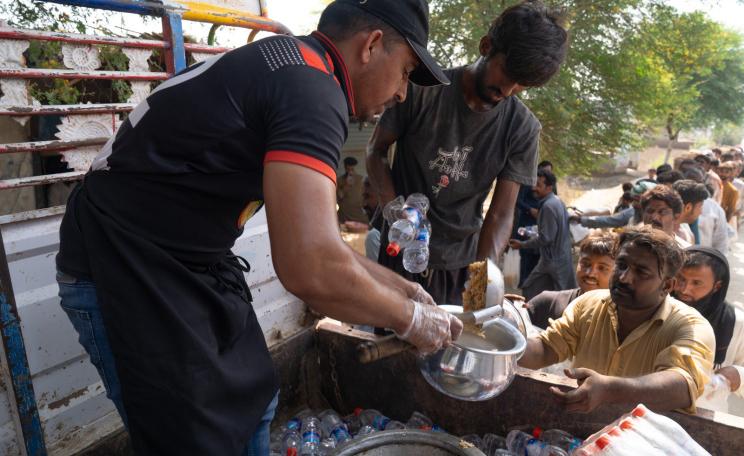Bad Seapiracy! Can’t you see who the real villain is here!
Seaspiracy - the Netflix documentary creating some big waves - is ostensibly about the crisis of mass extinction being driven by the global fishing industry across the world’s oceans.
But its broadcast and the ensuing backwash also reveals an extinction that is quietly taking place below the surface - in the newsrooms of print and broadcast media across all continents. The bycatch of Seaspriacy reveals a paucity of journalism today that is allowing the fishing industry to mount a counterattack against this important documentary.
The two catastrophes - at sea and in our newsrooms - are related: symptoms of the same cause. Indeed, Seaspiracy commits the same offence as precursor Cowspiracy in promising to reveal some deliberately hidden truth while itself failing to address the issue of capitalism as the motive of profit making environmental harm.
Industry
The Netflix film has been rated as the most watched documentary in the UK on the popular streaming platform and is at the top of the charts in a number of countries internationally. This is a huge achievement for its makers, partners Lucy Tabrizi and Ali Tabrizi.
But there are serious journalistic holes in good ship Seaspiracy which means it has weathered the inevitable storm stirred up by the fishing industry and its paid supporters less adroitly than so easily could have been the case. The fault does not lie with the young filmmakers however, but with Netflix and the journalism industry more widely.
Let us begin with a brief overview of what Seaspiracy gets right. This is a hard hitting documentary which is accessible and compelling. It casts a very wide net and lands some big fish. It shows the absolute devastation taking place on the high seas and - unlike too much media output - really does speak truth to power.
The primary points are that overfishing is emptying the seas and threatening our life support systems. This is driven by international corporations driving down costs as the bounty dwindles. It is torturing and threatening animal species we know and love. Governments - including supranational bodies such as the EU - are failing to act. Consumers cannot trust ethical labelling as ‘watchdog’ civil society groups involved are compromised.
This is a story that must be told. But this is where the directors start taking on water. The main problem is this project has been massively underfunded and under-resourced. The two filmmakers are taking on a billion dollar industry and demand a standard in accountability - accuracy, visibility, straight talking - which they almost fail to achieve themselves.
Fact checkers
Ali Tabrizi tells how, fresh out of film school, he wanted to go and film some fish and then end up witness to a huge “conspiracy”. The film follows the formula of Cowspiracy - and this is its primary route to success, and its biggest failing. The research shown in this film is often basic Google searching. The information discovered is very much out there - nothing in this film is actually new.
Bad Seapiracy! Can’t you see who the real villain is here!
Ali as the narrator and star of the film relies on news websites such as the Metro for some of its big claims - and inevitably these do not always weather the storm. The fact the filmmakers did not click through the headlines to the original peer reviewed research is heartbreaking.
The title claim that there is a “seaspiracy” where NGOs are collectively complicit and fail to tell their activists about the benefits to the environment of avoiding fish and meat in their diets is laughable - not least because charities such as the Vegan Society have spent decades doing exactly that.
There are other flourishes included to give the film the feeling of a deep investigation that lack authenticity.
Ali claims to have stumbled across dark truths - Japanese whaling - which have already been the subject of successful mainstream documentaries. The use of undercover recording is completely unnecessary. The scene where they flee the authorities mid interview feels hammy. A recent film graduate being turned away from the front desk of a corporate HQ is not proof of anything.
But all these problems with the film are a necessary aspect of its success. It seems that the Tabrizis did almost all the work by themselves and with almost no money and no institutional support. There really needed to be a team of researchers, fact checkers and editors working on this important cultural asset. Netflix should have handed Lucy and Ali a suitcase of cash to go and actually find out something original. There is very clearly an ocean of wrongdoing out there to explore.
Bycatch
Which brings me back to the crisis of journalism. The single most unedifying lesson from the event that is Seaspiracy is how much of the news industry itself has reacted.
The pushback from industry was inevitable, predictable and manageable. It would have been better if the film had relied on current peer reviewed literature rather than Google search results. But the main thrust of the argument is based on so many strands of evidence that it does survive the scrutiny and attack.
People working for the fishing industry, charities heavily funded and closely associated with that industry, are leading the attack on Seaspiracy.
But this work is extremely unconvincing and unimpressive. A university academic seems to imply that no vegan can make a film telling the truth about the animal industry - because they are a propagandist. Obviously if the presenter of the film ate a salmon canapé during the press review he would be denounced as a hypocrite. So why did the media bite?
The best part of the film is a a gold-standard interview with Mark J Palmer, who is a serious person at the Earth Island Institute, which sells its Dolphin Safe tuna labelling licences to tuna producers. The interview begins with Palmer saying very clearly that a company that kills "one dolphin" is "out" - presumably refused the Dolphin Safe label.
He immediately admits that the institute cannot guarantee any reduction in dolphin bycatch. His independent observers are not out at sea "on a regular basis". The observers can be bribed. The viewer comes away thinking Palmer has literally no idea whether the firms he is certifying are responsible for multiple deaths of dolphins. "The world is a difficult place sometimes", he smiles. It all feels rather fishy, if not a proven conspiracy.
Dolphins
The interviewee, an associate director of the International Marine Mammal Project team in the US, is given an opportunity in the film to clarify or retract his very candid comments. He fails. It is inevitable that Palmer - as with other people interviewed in the film - are going to complain after launch when they realise this documentary is making such a splash.
And this is where the real crisis of the media becomes extremely apparent. Let us take just one example from The Guardian.
George Monbiot is a high profile environmental columnist for Britain's only liberal news-sheet. He is also perhaps the most knowledgeable journalist about the crisis driven by the fishing industry today. He appears in the documentary and gifts its directors the neologism “blood shrimp”, referring to human slavery on the high seas. He has been promoting and supporting the film.
But the actual news story from The Guardian about Seaspiracy amplifies the pushback against the film. “Seaspiracy: Netflix documentary accused of misrepresentation by participants”, runs the headline.
“The film took my statement out of context to suggest that there is no oversight and we don’t know whether dolphins are being killed. That is not true,” Palmer carps.
Career
This 'story' is absurd. If The Guardian runs an article, say, on the Murdoch press hacking phones, and quotes in that story a Murdoch spokes, this person suddenly becomes a “participant” in the production of that story and an authority on whether that act of journalism “misrepresents” those it has accused. This marks the death of journalism. And it is partly self inflicted.
The Guardian reports: "David Phillips, the director of the IMMP, said the film had chosen to 'grossly distort and mischaracterise' the aims of the label. In a statement, Phillips said: 'The Dolphin Safe tuna programme is responsible for the largest decline in dolphin deaths by tuna fishing vessels in history. Dolphin-kill levels have been reduced by more than 95 percent, preventing the indiscriminate slaughter of more than 100,000 dolphins every year'."
The dolphins might one day be driven to extinction but right now there seems to be no journalists left to check that extraordinary claim. We are destined only to repeat it.
The Guardian, which has a few more than 100,000 a day in print sales, continues: “Prof Christina Hicks, an environmental social scientist at Lancaster University who was interviewed for the film, tweeted: 'Unnerving to discover your cameo in a film slamming an industry you love and have committed your career to'."
Academia
This is an academic, who works for an independent university, describing fishing as “an industry you love and have committed your career to.” Bad Seapiracy! Can’t you see who the real villain is here!
I single out The Guardian of course because this is the only newspaper in the UK we expect to meet any kind of standard. The same response - a capitulation to the PR industry - is replicated across the mainstream news ecosystem. It is the story.
The nation's newspapers are able to hang the Tabrizis out to dry because the filmmakers committed the sin of sourcing information from those self-same newspapers.
Let's pause. I want to hold my hand up here. This article itself is a point of evidence in the decline of journalism. I am the editor of The Ecologist and I have at my disposal a reporting team of exactly no staff.
I would dearly love to watch the film through with a cheap pen and notebook, list each and every one of its claims and then commit the time to researching the veracity of those facts. I could then provide the reader with a useful service - perhaps certifying the quality of this media product. I don't have the resources.
Even more so, I would love to meet the challenge that I claim that the Tabrizis have failed to meet: to go out into the real world, commit days, weeks, months of research in order to uncover new, untold scandals on the high seas. I would like to deliver journalism that informed academia, rather than simply quoted tweets from academics who are by their own account loyal to industry.
Counterclaims
So let's reel this one in.
Seaspiracy does its audience a tremendous service in telling the story of biodiversity collapse in our oceans in a viewer friendly format.
And it inadvertently does a secondary service: showing us what it means to inhabit a global crisis when our news media is all but extinct. We do not have the resources, and perhaps lack the will, to successfully hold the fishing industry to account.
Amid all the myriad claims made in Seaspiracy, the inevitable industry counterclaims, the ensuing media failure and introspection, the fishing continues. The tip of the massive capitalist iceberg that sits just under the tempest remains largely unnoticed by viewers at home.
This Author
Brendan Montague is editor of The Ecologist.







